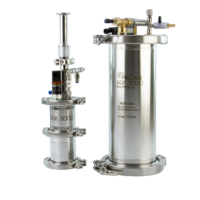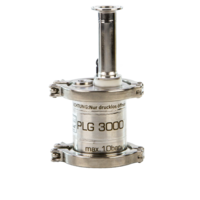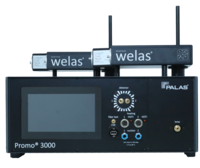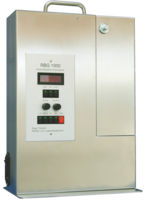Data protection
Data protection information with additional information for visitors, business partners and interested parties can be found here:
Data protection information for visitors, business customers and interested parties in accordance with articles 13 and 14 GDPR
The following data protection information applies to the use of this website.
Thank you for visiting our website! We appreciate your interest in our company and products. We respect your private sphere and ensure that your personal data will be protected by processing it in accordance with these data protection provisions and the applicable data protection legislation.
You may visit our website without letting us know who you are. In order to display our website, we recommend you to provide the data (see “Log files”) which your browser transfers to our server. Other personal data about you will only be saved if you voluntarily enter it on the website or use a function to that effect, such as our contact form.
Orders, customer account
In order to use our b2b online shop to place orders or use our services, you must register using a customer account. The fields marked with an asterisk are mandatory entries. We process this data for the purpose of performing our service and communicating with you as is necessary to do so (Art. 6 Para. 1 Clause 1 Letter b of the General Data Protection Regulation [GDPR]). Providing further information may be helpful for performing the service or making enquiries, but is not mandatory (voluntary statements).
You can have your user account deleted at any time by sending us an E-mail to the contact information specified under “Responsible person,” whereby it may be necessary to observe retention periods under fiscal and commercial law.
We use this data exclusively for the stated purposes. This data will not be transferred to third parties or other companies, except for the logistics companies we have commissioned for shipping. Your data will not be transferred to third parties.
Contact
You may enter your personal data on our website in order to contact us. It is only mandatory to enter the information marked with an asterisk. Providing further information may be helpful for processing your request, but is not mandatory (voluntary statements). This information will only be used and saved with your consent for the purpose of processing your message (Art. 6 Para. 1 Clause 1 Letter a GDPR). The information will not be used for other purposes or transferred to third parties unless you expressly agree for us to do so (consent).
Cookies
Cookies are very small text files used by Internet pages, which your browser stores on your computer and which can flow certain information to us or, if necessary, to a third party.
Transient cookies are automatically deleted when you close your browser. These include in particular session cookies. They store a so-called session ID, which can be used to assign various requests from your browser to the joint session. This enables your computer to be recognised when you return to our website. The session cookies are deleted when you log out or close your browser.
Persistent cookies are automatically deleted after a specified period, which may vary depending on the cookie. Unlike transient cookies, persistent cookies are not deleted automatically when the browser is closed. You can also delete cookies at any time in the security settings of your browser.
Cookies, which are absolutely necessary in order to provide a service expressly requested by the user ("necessary cookies"), are processed by us within the framework of our legitimate interest in the provision and operation of the website on the basis of Art. 6 para. 1 sentence 1 lit. f DSGVO. The following necessary cookies are set when you visit our website:
- Designation: PS; Purpose: Session cookie for user login; Storage period: Session
- Designation: PS; Purpose: To hold the shopping basket; Storage period: Session
In addition, there is a storage of or access to further information on your end device, which is not absolutely necessary in order to provide a service expressly requested by the user. Storage or access will only take place if you give your consent. Details on the type of information, purpose of processing, storage period of the information and possible recipients of the data will be provided in the further course of this data protection declaration.
You can set your browser so that cookies are generally not accepted or only certain cookies are saved or not saved. You can revoke any consent you may have given to the processing of data using cookies at any time for future use by deleting the corresponding cookies directly via the settings of your browser. You can find out more about this in the help system of your browser. If your browser rejects all cookies, it is possible that not all functions of this website can be used.
Links to social media plattforms
Our web presence links our pages to various social media platforms. We would like to point out that, by clicking on such links, you will leave our website and thus the scope of this data protection declaration as well. The respective data protection declarations and terms of use of the operator of the social media platform in question apply exclusively on such platforms.
Log files
When you access our site, we collect the following information about your computer: Your computer’s IP address, the query from your browser as well as the time of this query. The status and volume of data transferred in this query will also be recorded, as well as product and version information about the browser and operating system which your computer uses. We also record the website from which you accessed our site. In the process, your computer’s IP address will only be saved during the time you are using the website and will then be deleted immediately thereafter or anonymised by abbreviating it. The other data will be saved for a limited amount of time. We use this data to operate our website, especially to detect and rectify errors in the website, to determine traffic on the website and to make adjustments or improvements (Legal basis: Art. 6 Para. 1 Clause 1 Letter f GDPR).
Embedded content from third parties (e.g. Google Maps)
If content from third party providers such as Google Maps is displayed on our websites, the transmission of your IP address and the content shown under "Logfiles" to the third party provider is required for the provision of this content and the display in your browser. The legal basis for data processing is Art. 6 Para. 1 S. 1 lit. f DSGVO. We have no influence on data processing at the third-party provider. If you are registered with the third party provider with a user account, the third party provider can assign your user behaviour to your user account. If necessary, the third party provider saves your data as user profiles and uses them for the purposes of advertising, market research and/or the needs-based design of its website. Objection rights against the creation of these user profiles must be directed to the third party provider.
Further information on the purpose and scope of data collection and processing by the third party provider can be found in its data protection declaration. There you will also find further information on your rights and setting options to protect your privacy:
- Google Inc., 1600 Amphitheater Parkway, Mountainview, California 94043, USA; Google Privacy & Terms . Google is certified in accordance with the EU-US Privacy Shield.
Use of Google Analytics
This website uses Google Analytics, a web analysis service of Google Inc. ("Google"). Google Analytics uses "cookies", which are text files placed on your computer, to help the website analyze how users use the site.
- Designation: _ga; Purpose: Analysis of website visits and optimization of the website; Storage period: 14 months.
- Designation: _gid; Purpose: Distinguishability of users in the context of tracking by Google Analytics; Storage period: 1 day
The information generated by the cookies about your use of this website is usually transferred to a Google server in the USA and stored there. However, in the event that IP anonymisation is activated on this website, your IP address will be shortened by Google within member states of the European Union or in other contracting states of the Agreement on the European Economic Area beforehand. Only in exceptional cases will the full IP address be transferred to a Google server in the USA and shortened there. On behalf of the operator of this website, Google will use this information to evaluate your use of the website, to compile reports on the website activities and to provide further services to the website operator in connection with the use of the website and the Internet. The IP address transmitted by your browser within the scope of Google Analytics is not merged with other Google data. You may refuse the use of cookies by selecting the appropriate settings on your browser, however please note that if you do this you may not be able to use the full functionality of this website. You can also prevent the collection of data generated by the cookie and related to your use of the website (including your IP address) to Google and the processing of this data by Google by downloading and installing the browser plugin available under the following link or alternatively by clicking on the following link to withdraw your consent (opt-out cookie).
Deactivate Google Analytics via opt-out cookieThis website uses Google Analytics with the extension "_anonymizeIp()". This allows IP addresses to be further processed in a shortened form in order to exclude the possibility of direct personal references.
We use Google Analytics to analyse and regularly improve the use of our website. We can use the statistics obtained to improve our offer and make it more interesting for you as a user. For the exceptional cases in which personal data is transferred to the USA, Google has subjected itself to the EU-US Privacy Shield. The legal basis for the use of Google Analytics is your consent according to Art. 6 para. 1 sentence 1 lit. a DSGVO.
Further information on the use of data by Google, setting and objection options can be found on the websites of Google:
Safeguarding your Data Revocation of consent and objection to data processing
If you have granted us consent, you may revoke it at any time with future effect.
If we base the processing of your personal data on the balancing of interests, you may raise an objection against this processing. In particular, this is the case if the processing is not necessary to fulfil an agreement with you, which we explain to you in the following description of the functions. When exercising such an objection, please state the reasons why we should not process your individual-related data the way we had been doing. In the case of a justified objection, we will examine the state of affairs and either discontinue or adjust the data processing, or present you with our urgent interests worthy of protection based on which we will continue the processing.
You may object to the processing of your personal data for purposes of advertising and data analysis at any time.
You may send us your revocation or objection at any time using the contact information under “Person responsible.”
Your rights
You have the following rights towards us regarding personal data which concerns you:
- Right to information
- Right to correction or deletion
- Right to limit the processing
- Right to object to the processing
- Right to data portability.
You also have the right to file a complaint about our processing of your personal data with a data protection supervisory authority.
Person responsible
Palas GmbH, Greschbachstraße 3 b, 76229 Karlsruhe, Germany, Tel.:
+49 721 96213-0, Fax:
+49 721 96213-33, E-Mail:
mail@palas.deData protection officer:
datenschutzanfragen@xdsb.de or at our mailing address with the addition “to the data protection officer”.
Copyright© 2011 - 2023Texts, images, graphics and the layout of this site are subject to German and international copyright law. Unlawful use, reproduction or transfer of individual content items or entire pages will be prosecuted under criminal and civil law.




